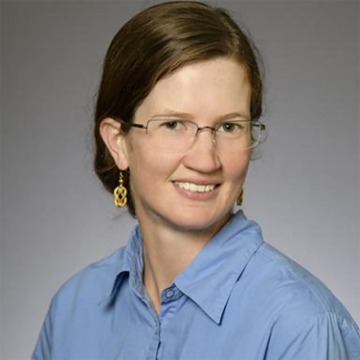Crossing Boundaries: A Conversation with Mining & Geological Engineering Professor Isabel Barton

Assistant Professor Isabel Barton holds a Master’s in Mining Engineering, a PhD in Geosciences, and an MS in Geosciences from the University of Arizona. Dr. Barton’s work spans a broad range of fields, with a specialization in research and teaching at the interface of geology, extractive metallurgy, and mining engineering. Her research projects include process mineralogy, field characterization of mineral distribution, hydrometallurgy, and ore deposit geochemistry. Dr. Barton’s teaching interests include geometallurgy, mineralogy, and the history of human use of nonrenewable resources, as well as introductory mining engineering and engineering design.
What drew you to join the School of Mining and Mineral Resources?
I work in a lot of different fields related to mineral resources, so I've never fit cleanly into one academic department. Since the school is set up for the express purpose of crossing disciplinary boundaries, that seemed like a good fit.

Isabel Barton
What feeds your passion for research and teaching?
Finding new things and learning new things.
What drew you to your current field of research?
Initially, I tell people I think it's genetic. Both of my grandfathers were geologists, and so I joke that there's some kind of recessive gene that skipped a generation. But mainly what I liked was the reach. It's right at the base of the supply chain; we can't do anything without minerals. Getting minerals is a prerequisite for doing anything else in society. But I particularly like geo-metallurgy and all the other things I do because they don't limit me to studying just one area. I like breadth more than depth, which is kind of unusual at a university. Working in a field like mineral resources allows enormous room for breadth.
Can you give me some examples of that breadth?
My main area of research is geo-metallurgy—looking at all the ways the mineralogy of an ore deposit can complicate the process of extracting metals. That by itself fuses mineralogy, petrology, geology, mineral processing, extractive metallurgy, and a lot of chemistry. But beyond that core area, I work with anthropologists, civil and aerospace engineers, geologists, and many other departments on projects ranging from the history of critical minerals around the world, starting in the Bronze Age, to diversity in engineering. So that's what I mean by being able to maintain a broad range of interests and not be limited to one particular area.
What advice would you give to students who are interested in pursuing a career in the mining and mineral field?
Take every class you're interested in. One thing I regret about my undergraduate years is that I was so focused on finishing quickly that I didn't take a bunch of classes that would have added an extra year. I would have finished in four years instead of three, but they would have really helped me build up a more comprehensive knowledge base. Sometimes that's classes in a core area, and sometimes it's the opportunity to reach out and do something different—take something completely irrelevant but very interesting, stimulating, and fun.
In your role as a professor, how do you approach mentoring your students?
I try to help them follow their interests and develop professional skills. There are certain minimum standards you have to meet, and that's the way it should be. But I always tell my students, if you're interested in something, follow up on that. Don't put life and fun on hold because you're a student. Yes, you'll be expected to spend most of your time on your studies, but if you're interested in, say, ancient Rome and the use of mercury, then read about it, take classes in it, and don't limit yourself to conventional boundaries in your field.
What role do you see your research and the School of Mining and Mineral Resources playing in addressing global challenges such as population growth and climate change?
In the long term, I think this school, and I hope my research, can help secure a more sustainable supply of minerals at the scale necessary for the future of civilization. Looking back a few thousand years, what people can do and what civilizations can accomplish is always a direct function of the materials they have available. If you don't have metals, you're not going to be sawing down trees, for instance. And if you don't have aerospace alloys, you're not putting satellites into orbit, no matter how good you are at the theoretical math involved. As the world's population is now around 8 billion, we need more and more minerals, not just for advanced technology but for the basics like electricity and clean water. Climate change adds another layer of complexity. We need more minerals and a wider range of different minerals than ever before, and we have less room for the high-impact practices of the past. Advancing research and education, training new professionals in the minerals industry, and educating the public about the importance of minerals and sustainable mining practices is where the school can make significant long-term impacts.

